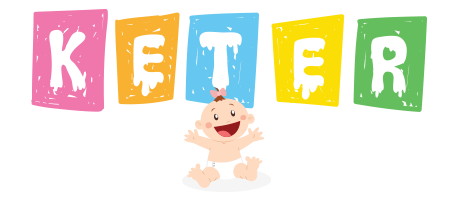
Get your baby swimming
When your child is not old enough to walk, it is foolish to take him to the pool. However, trampling in water has many advantages.
Your baby's body responds to staying in the water in a completely unique way, creating billions of new neurons as your baby begins to kick, slide and slide.
Due to the sensitive immune system, doctors usually advise parents to keep their children in chlorinated pools or lakes until they are about 6 months old
However, you do not want to wait long to bring your child to the pool. Children who do not swim late in their legs are more likely to be afraid and negative. Younger children are usually less resistant to buoyancy on the back, an ability that some children can even learn!
Here’s the lowdown on the potential benefits of infant swim time.
1. Swimming may improve cognitive functioning
Bilateral cross patterns, which use both sides of the body to act, help your child's brain grow.
Cross movements accumulate neurons throughout the brain, but especially in the corpus callosum. This facilitates communication, feedback and modulation from one side of the brain to the other. This can be improved by:
- reading skills
- language development
- academic learning
- spatial awareness
When swimming, your child moves his arms and kicks his feet. And they do these actions in water, which means that their brain registers a tactile sense of water plus its resistance. Swimming is also a unique social experience that increases its strength to strengthen the brain.
A four-year study of over 7,000 children from Griffith University in Australia showed that swimmers have progress in physical and mental development compared to non-swimmer peers.
2. Swim time may reduce the risk of drowning
Swimming time may reduce the risk of drowning in children over 4 years of age. Swimming may reduce the risk in children aged 1 to 4 years, but the evidence is not strong enough to say for sure.
Even younger children can learn to swim, such as swimming on their backs. But for babies under one year old, it doesn't stop them from drowning.
Even if your child has swimming lessons, he should still be supervised while he is in the water.
3. Swimming may improve confidence
Most children's classes include features such as water features, songs, and skin-to-skin contact with parents or caregivers. The children communicate with each other and with the tutor and begin to learn to work in a group. These elements, along with the fun of acquiring new skills, can boost a child's confidence.
An older study reinforced these findings, illustrating that a program that included early, year-round swimming lessons for preschool-age participants was associated with:
- greater self-control
- a stronger desire to succeed
- better self-esteem
- more comfort in social situations than non-swimmers
4. Increases quality time between caregivers and babies
Even if you have more than one baby, a parent-only water bath involves a face-to-face connection. During the lesson, you and your little one focus on each other, so it's a great way to spend time together and express the experts who offer swimming lessons.
5. Builds muscle
Swimming time helps support the development and control of important muscles in young children. Young children will need to develop the muscles necessary to keep their head high, move their arms and legs, and work on the heart in coordination with the rest of the body.Swimming is great for cardiovascular health and will help strengthen your little one's heart, lungs, brain and blood vessels.
6. Improves coordination and balance
In addition to building muscle, time in the pool can help your child coordinate and improve his or her balance. Learning to move your arms and legs isn't easy. Even small coordinated movements are big steps in your baby's development.
7. Improves sleeping patterns
As mentioned above, time in the pool takes a lot of energy for children. They find themselves in a new environment, using their bodies in completely new ways and working hard to stay warm.
Also, all of this activity consumes a lot of energy, so you may notice that your little one is more sleepy after a swimming lesson. You may need to plan for sleep after some time in the pool or get up before bed on days when swimming is routine.
8. Improves appetite
There is nothing like a day in the pool or on the beach to keep you hungry and children are not. All physical exercise burns a lot of calories in the water, as well as the energy their bodies need to stay warm. After a regular swim, you will probably notice an increase in your child’s app.
Safety tips
Babies and children should not be left alone around water, such as bathtubs or swimming pools. It is important to keep in mind that a child can drown in 1 inch of water.
Here are some other tips to keep in mind when your child is around water:
- Be aware of even small bodies of water, like bathtubs, ponds, fountains, and watering cans.
- Always make sure your child is being supervised by an adult while swimming.
- Enforce safety rules around the pool, like no running or pushing others underwater.
- Use a life jacket while in a boat. Don’t allow inflatable toys or mattresses to be used instead of a life jacket.
- Completely remove the cover of your pool before swimming (if your pool has a cover).
- Don’t drink alcohol, and eliminate distractions (talking on your phone, working on a computer, etc.) if you’re supervising children swimming.
